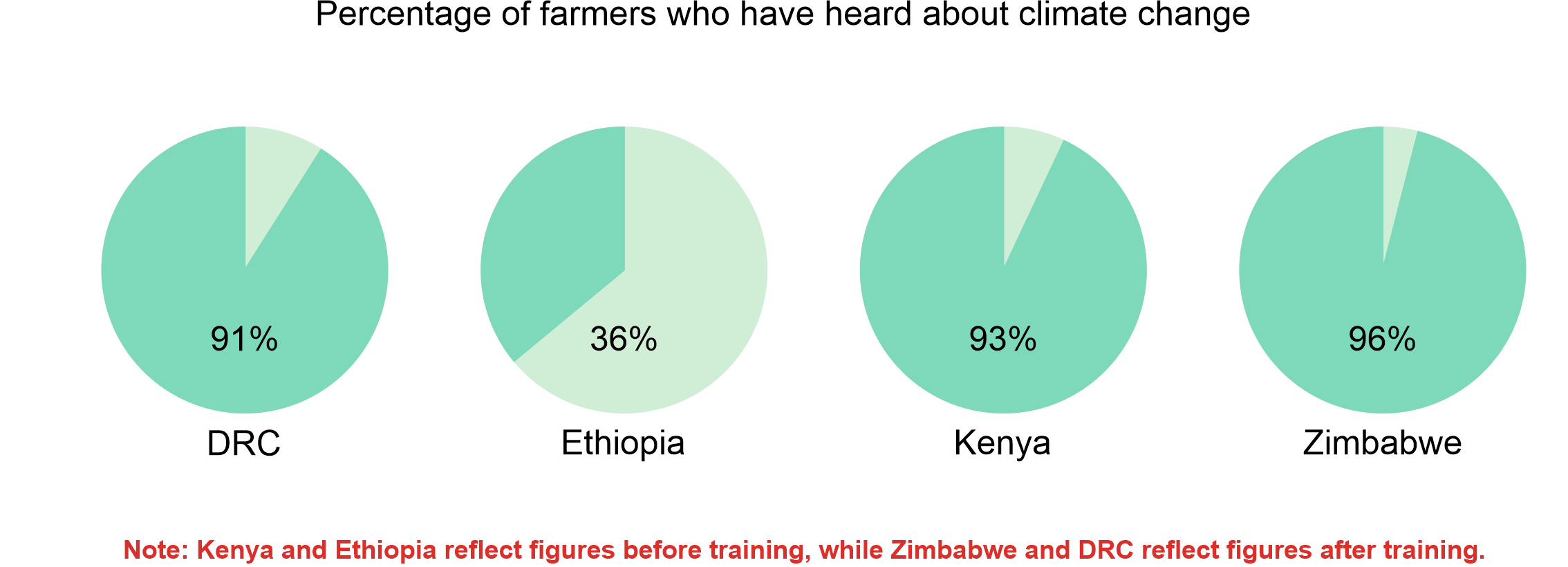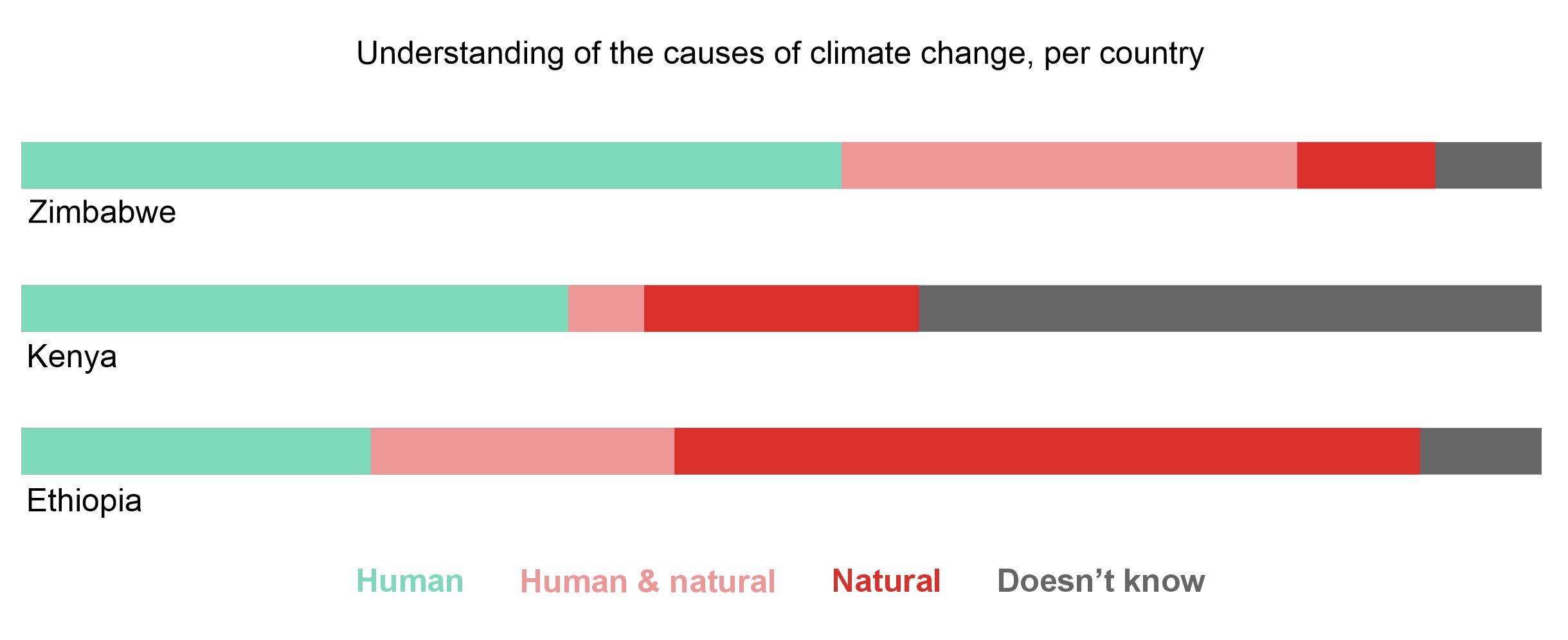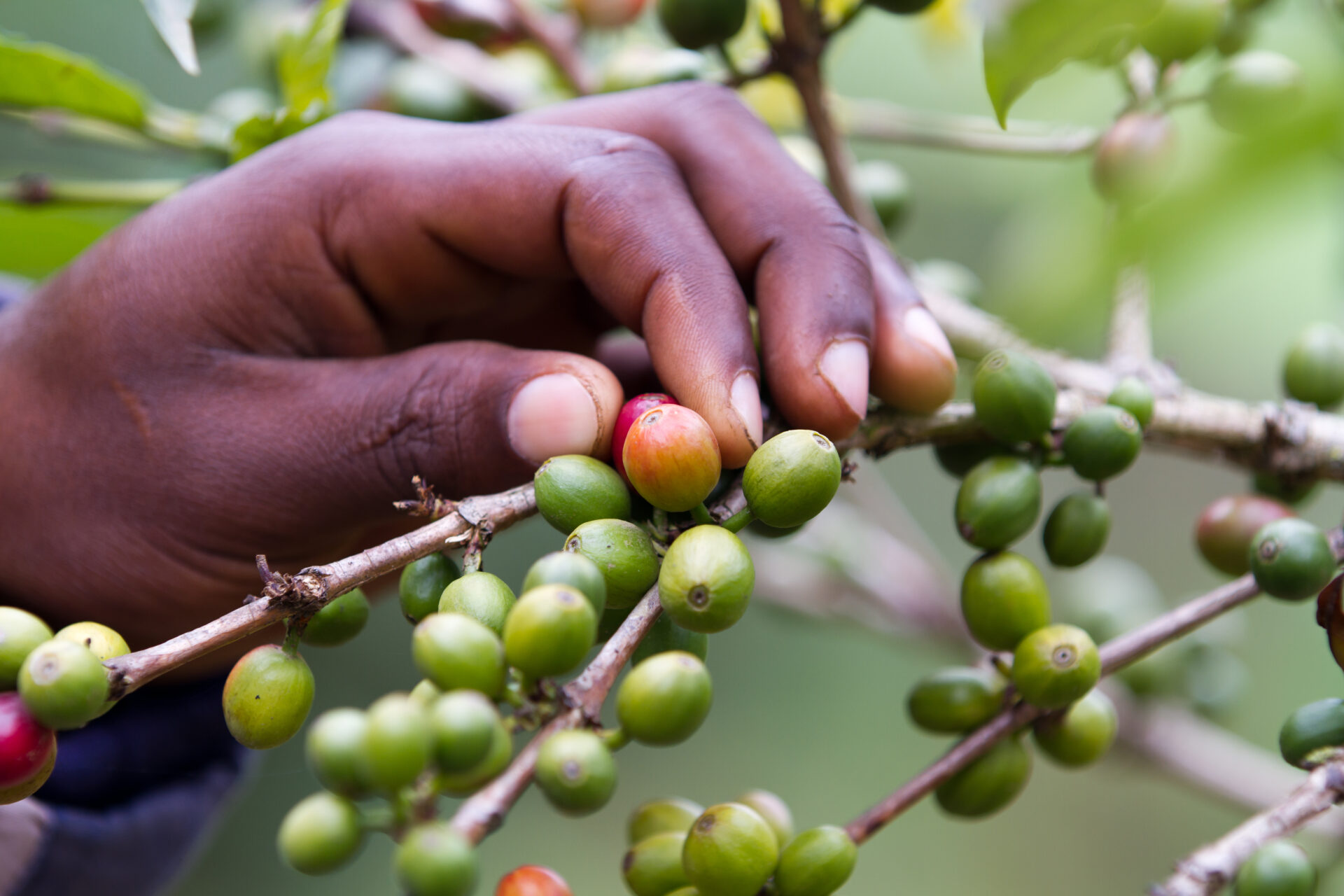Climate change has the potential to impact the lives of farmers across the African continent. In some ways, it already is. Yet, there is little data on farmers’ understanding and experience of climate change. To bridge this gap, Laterite is developing a new survey tool designed to collate data on knowledge, attitudes and perceptions on climate change and how farmers respond to its challenges. We are testing the tool with coffee farmers in East and Central Africa, in the context of our ongoing research collaboration with TechnoServe evaluating their coffee agronomy training program.
So far we’ve talked to around 2,500 coffee farmers in the Democratic Republic of Congo (DRC), Ethiopia, Kenya and Zimbabwe. Some of these interviews (Kenya and Ethiopia) have taken place before program implementation; others (Zimbabwe and DRC), after completion of TechnoServe’s Coffee Farm College (CFC). As more data is coming in, we’re building a detailed picture of how African coffee farmers understand climate change and the related challenges they face.
What we’ve learned so far
Our survey shows that most farmers in DRC, Kenya and Zimbabwe have noticed changes in weather patterns over the past 20 years. The most reported changes are disruptions to rainfall (associated both with flooding and drought), higher temperatures and unpredictable weather.
The survey also suggests that farmers are adjusting some of their farming practices to combat these effects. The results vary significantly by country, but the most commonly quoted mitigation strategies are increasing mulching or composting, and planting shade trees.
Where does climate change come in?
The figure below shows that a majority of surveyed farmers in Kenya, Zimbabwe and the DRC have heard about climate change. In contrast, only about a third of Ethiopian farmers (36%) report having heard the term. TechnoServe training has the potential to help bridge these gaps in knowledge—Ethiopian farmers are about to start the CFC, where they will learn agronomy practices that will help them become more resilient to oncoming changes.

What about the causes of climate change?
The perception of what causes climate change varies by country. In Zimbabwe, most farmers (54%) relate human activities to climate change and another 30% point to a combination of human and natural causes. In Kenya, the proportion of farmers without an answer is almost half, and in Ethiopia half of the farmers we spoke to describe climate change as a natural phenomenon.

Looking ahead
These initial results aren’t enough to draw firm conclusions, but we’re confident that farmers are aware of changing weather patterns and are reacting to these changes. The surveys also suggest gaps in knowledge, attitudes and perceptions of climate change. If TechnoServe trainers can get an accurate sense of farmers’ understanding of climate change and their most pressing climate-related challenges, they can tailor their support to maximize the program’s impact.
We will continue collecting data with this survey module to get a robust understanding of climate change perceptions amongst the participants in TechnoServe’s coffee training programs. We also have plans to integrate the collected data with our geospatial database to uncover the relationship between farmer experiences and geospatial information.
This blog post was written by Camila Posada and Rob van Haaften, Research Analysts at Laterite working with TechnoServe in the context of our learning partnership.
